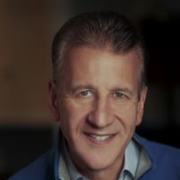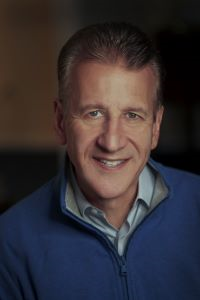How Do We Measure Success?
How Do We Measure Success?
Today we are pleased to introduce to you a valued colleague. Ed Wallace. Ed will share his insights with us from time to time. You will see in his bio that he is an author. I would strongly advise those of you who read and gain new perspectives from books that Ed provides clear and easy to read advice which you can translate into your work and your personal life.
Ed Wallace, President, AchieveNEXT Human Capital.
Ed consults with and speaks for corporations and associations across the globe with a client list that is a Who’s Who of Fortune 500 companies. He is the author of Fares to Friends, Creating Relational Capital, Business Relationships That Last, and his most recent the #1 best seller, The Relationship Engine. In addition, Ed is currently on the Executive Education faculty of Drexel’s LeBow College of Business and Villanova University’s Human Resources Master’s program. https://www.linkedin.com/in/relcapgroup/
Hint: It comes through the experiences we create for others
While many leaders prioritize new products and services and hard assets that can be plugged into spreadsheets, research reveals that core business relationships are the true catalyst for driving high performance. At the same time business relationships are unpredictable and hard to measure. They’re rarely captured on organization charts or strategic plans. Most leaders, in fact, leave business relationships to chance, and simply hope that cross-generational conflicts, organizational complexity, diversity, and other organizational barriers will just go away because, ‘we’re hiring great people.’
We see today’s leaders winning by investing in ‘Relational Capital’ with their colleagues, teams, and across their enterprises. Relational Capital is defined as the ‘distinctive value created by people in a business relationship.’ It forms where the qualities of credibility, integrity and authenticity converge when working with each other. So how do ‘relational leaders’ hit the relational mark?
My experience through many years of research into business relationships and training over 30,000 business professionals has revealed five identifiable principles that lead to effective relationship development and, not surprisingly, superior performance. These principles don’t exist only in the business world but are at the heart of most successful people’s lives. Through my experiences and research, I know they can be learned, practiced and improved, bringing a surprising level of precision to relationships in organization.
The Five Principles of the Relational Leader
- Display Worthy Intent
- Care About People’s Goals, Passions, and Struggles (GPS)
- Make Every Interaction Matter
- Value People Before Processes
- Connect Performance to a Purpose
(Wallace, The Relationship Engine, Harper 2016)
These principles form a system of beliefs for high performers that Relational Leaders follow and apply intentionally. The result is what I call ‘relational agility’ that can bridge the generational and cultural gaps that exist in today’s organizations and harness the collective talents, thoughts, and efforts of people. As Ron Slee, who heads up Learning Without Scars, suggests, ‘the biggest differences that I see are that millennials are impatient. Today a lot of older management view that as a negative quality. I view that as a positive. If these younger employees are not learning and growing their potential, as employees, they do not want to stay around. I really admire that quality. They have a need, if not a thirst to learn. They want to continuously improve. They want up-skilling.’
Understanding this element of the Relational GPS of younger employees will allow for management to understand ways to support and foster the development of younger team members.
We will visit again soon.



